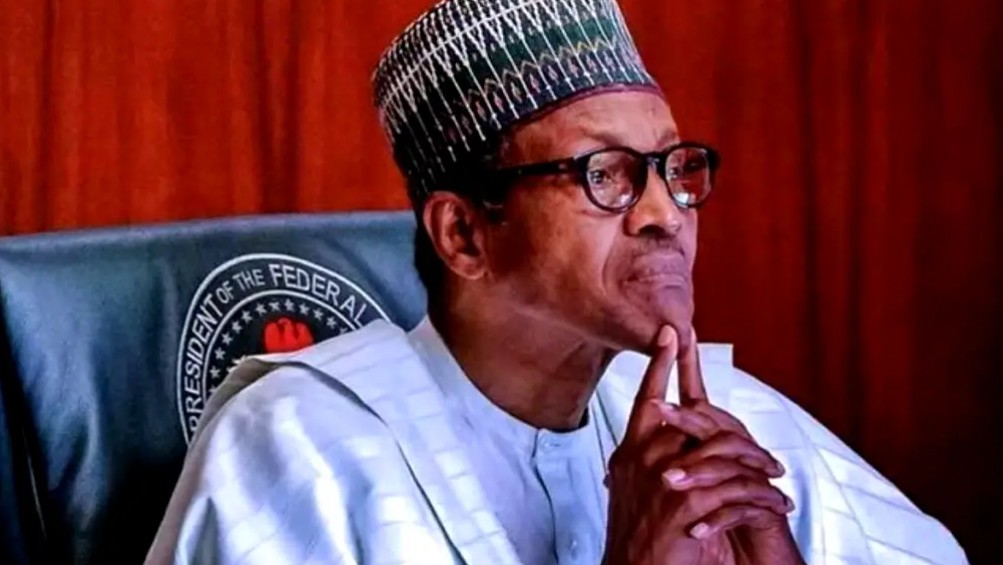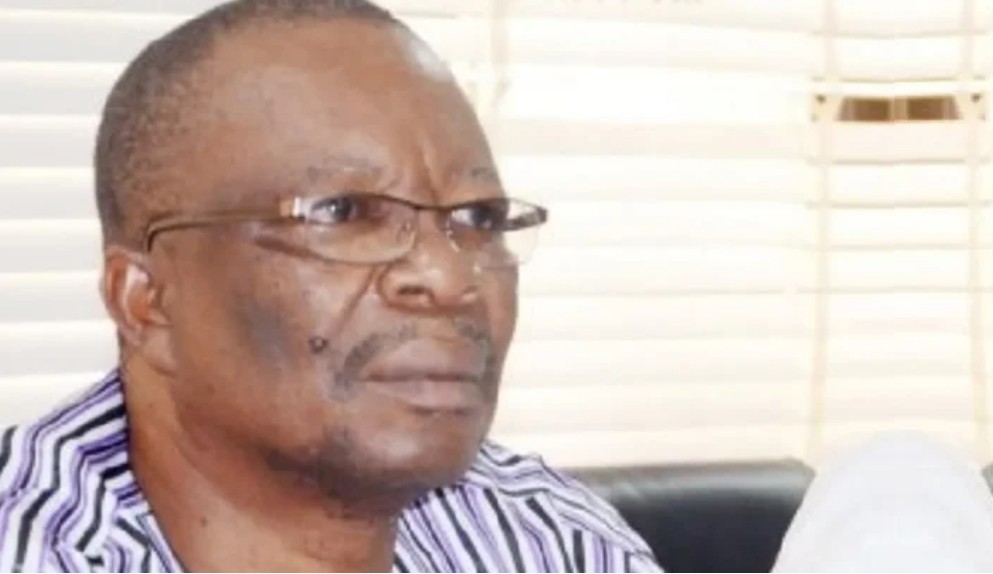Home > Business & Economy > Act fast to save economy, NECA, NESG tas...
Act fast to save economy, NECA, NESG task FG
By Nnaji | 08 Aug, 2022 02:17:43am | 158

The Nigeria Employers’ Consultative Association, NECA, a weekend in Lagos, raised alarm over the nation’s economy, saying it is on the brink.
It also warned that spiralling inflation, rising energy costs, scarcity of foreign exchange, and dwindling value of the Naira, among others, are bleeding the economy.
Similarly, the Nigeria Economic Summit Group, NESG, equally warned that the failure of the Federal Government to embark on reforms will worsen the dire economic situation in the country.
Director-General, DG, of NECA, Mr. Wale Oyerinde, who made the observation, lamented that the economy is under the weight of an almost comatose aviation sector, stuttering education system, rising debt, depleting foreign reserves and rising fuel subsidy expenses, among others.
Oyerinde, who was only recently appointed D-G of NECA, advised the Federal Government to employ a holistic and multi-pronged approach to resolving the challenges faced by the nation.
He said: “The nation is currently faced with multiple challenges. With a dire combination of spiralling inflation, rising energy costs, aviation fuel, diesel, scarcity of foreign exchange, dwindling value of the naira, an almost comatose aviation sector, stuttering education system, rising debt, depleting foreign reserves and rising fuel subsidy expenses, there is no better time for the government to salvage the economy.
“These issues threaten to lay bare the country’s economy. Consequently, the government needs to reappraise current economic policies and deepen its engagement with the Organized Private Sector, OPS.
“While the government’s effort to salvage the economy is commendable, there is, however, a need for a more holistic approach to resuscitate the stuttering economy.
“Being dependent on crude oil for about 90 per cent of its foreign exchange earnings and 80 per cent of its budgetary revenues, Nigeria has always lived dangerously on the precipice, with a major chunk of its revenue dependent on the complexities of global crude demand and supply.
‘Situation worsened by insecurity, policy inconsistencies’
“A dangerous blend of self-destructive tendencies, insecurity and fiscal and monetary policy inconsistencies have also conspired to make the situation worse. While revenue continues to shrink, the nation continues to dig its feet deeper into debt.
“At different times over the past few years, various international bodies, including the World Bank, International Monetary Fund, IMF, and the World Trade Organization, WTO, have warned about the excessive nature of the country’s borrowing.
“While some stakeholders have canvassed that the revenue-to-GDP ratio of the country is healthy, recent announcements by the Minister of Finance, Budget and National Planning that revenue-to-debt service ratio is in the negative calls for urgent concern.
“In April, the World Bank warned that the rising cost of fuel subsidy could significantly impact public finance and pose debt sustainability concerns. Alas, this projection is almost happening. The Fiscal Performance Report released recently by the Federal Government confirmed the accuracy of these projections.
“The combination of a struggling aviation sector and roads taken over by bandits have also conspired to fuel the situation, leading to rising inflation at 18.6% (according to the NBS). These have continued to worsen the promotion of commerce and the increase the rate of de-industrialization of some regions of the country.”
‘What government should do’
While recommending how to deal with the multi-face challenges, the NECA D-G called for “a deliberate and economic priority-influenced approach and commencement of wide consultations with stakeholders, with a view to harvesting alternative policy options to re-energize all sectors of the economy.
“While the challenges of revenue shortage are acknowledged, burdening businesses with new taxes or levies will be counter-productive and a self-destructive action. Over-burdening already burdened businesses will only lead to business closures and an escalation of job losses, with consequential effect on our social and economic stability.
“Government should, in the short-term, widen the tax net, reduce wastages in governance and focus on economic projects that will stimulate the economy and guarantee an enabling environment for businesses to operate.
“An enabling environment for local businesses will create the platform for new foreign direct investment, which could increase foreign exchange inflow into the country.
“In the medium term, the Federal Government should, as a matter of urgency, fix the four national refineries and encourage the development of modular ones as a precursor to total removal of fuel subsidy.
“With over N5 trillion budgeted for subsidy payments in 2022, an amount larger than the budget for education and agriculture, this is unrealistic and unsustainable. Economic interventions aimed at improving living standards (to stimulate consumption) and enterprise sustainability (to promote job creation) should be implemented.
‘’While foreign exchange scarcity persists, allocation of the available foreign exchange to manufacturing and other productive sectors of the economy should be given priority.”
FG must embrace reforms to save economy —NESG
On its part, the Nigeria Economic Summit Group, NESG, suggested that Nigeria needs to achieve a paradigm shift in governance and policy design to sustain and accelerate economic growth.
Chief Executive Officer of the NESG, Mr Laoye Jaiyeola, made the suggestion in the group’s Macro-economic Outlook.
He said failure by the Federal Government to embark on the reforms could worsen current economic challenges.
“In NESG, we believe that the role of government is to ensure that reforms translate to a friendly business environment and better welfare conditions for households,” he said.
The NESG boss also said although Nigeria had enormous potential, job creation across sectors is lagging, resulting in an increase in unemployed individuals.
He said that widespread insecurity across the country had informed the need for policy formulation and implementation that will impact all strata of society.
“While there is considerable improvement in some areas such as the mobilisation of non-oil revenue in the last few years, one thing is clear:
“Nigeria cannot afford to continue with its business-as-usual approach in policy making and execution.
“The heightened insecurity and social vices in several parts of the country is proof that when some segments of the population are left behind, it will offset the few gains made prior to COVID-19.
“It will also deprive the country of much-needed investments that would ensure sustainable growth and development, ‘’ he said.
Jaiyeola called for deregulation of the country’s oil sector to boost investments and also save huge government revenue being spent on fuel importation.
He added: “Long-standing issues of deregulation of the downstream sector, foreign exchange scarcity and lower investments in key sectors must be given the utmost attention.
“The deregulation of the downstream oil and gas sector for example is needed at this critical time when massive investments are required to fix deteriorating refineries.
“The deregulation of the downstream oil and gas sector for example is needed at this critical time when massive investments are required to fix deteriorating refineries.
“This will address the predicament of huge importation of refined petroleum products that deprive the country of the foreign exchange required to meet other important obligations.”
VANGUARD

Leave a Reply
Your email address will not be published. Required fields are marked *
Category
 Sports
Sports  Culture & Tourism
Culture & Tourism Crime & Security
Crime & Security Opinion
Opinion Business & Economy
Business & Economy Health
Health.jpeg) Interviews
Interviews Religion
Religion  Entertainment
Entertainment Education
Education  Politics
Politics News
News